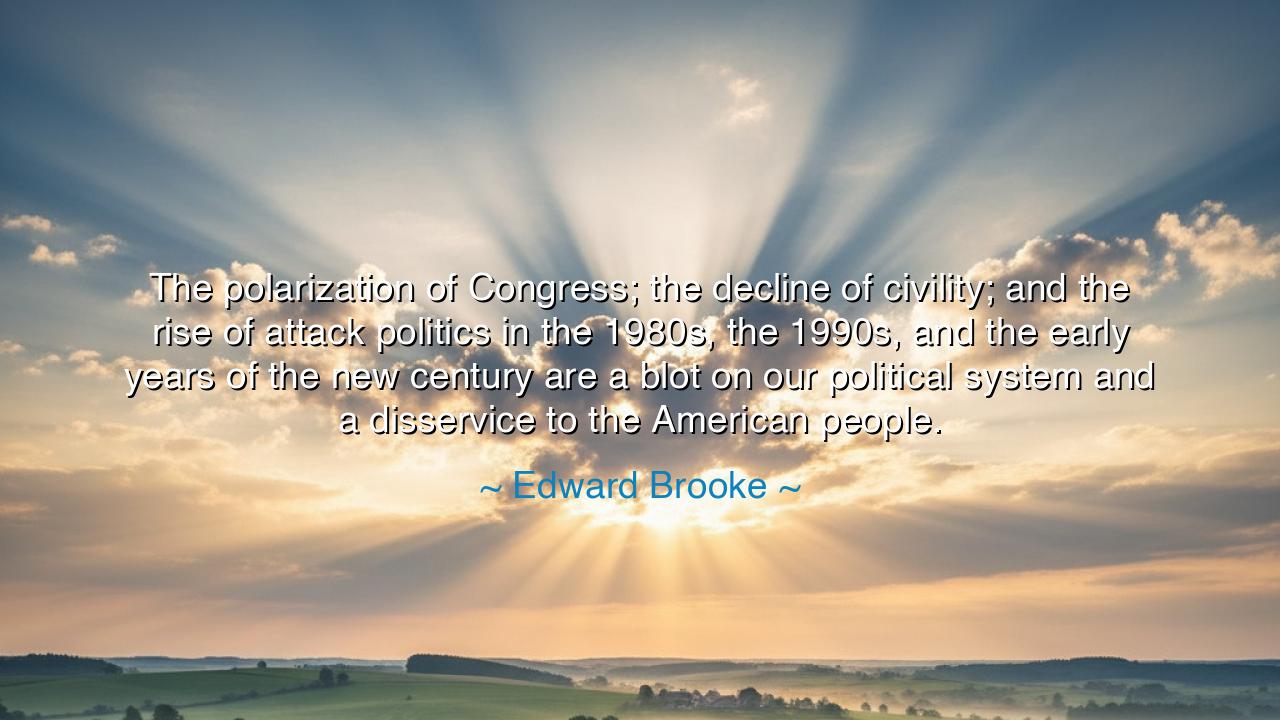
The polarization of Congress; the decline of civility; and the
The polarization of Congress; the decline of civility; and the rise of attack politics in the 1980s, the 1990s, and the early years of the new century are a blot on our political system and a disservice to the American people.






Hear, O seekers of wisdom, the voice of Edward Brooke, the first African American elected to the U.S. Senate by popular vote, who declared: “The polarization of Congress; the decline of civility; and the rise of attack politics in the 1980s, the 1990s, and the early years of the new century are a blot on our political system and a disservice to the American people.” In these words lies the grief of one who cherished democracy, yet watched it descend into bitterness and division.
For the purpose of Congress was once to deliberate, to find compromise, and to lift the nation together. But as Brooke observed, the spirit of cooperation gave way to polarization, where parties became enemies instead of partners. The noble art of debate withered into personal assaults, and the civility that once allowed adversaries to remain colleagues was consumed by hostility. When politics becomes war without weapons, the people themselves bear the wounds.
The rise of attack politics, as Brooke named it, is no mere tactic but a poison. To destroy an opponent’s character rather than to argue their ideas is to erode trust not only in leaders, but in the very system they represent. History shows this danger clearly. In the waning days of the Roman Republic, senators ceased debating policies and began slandering and assassinating rivals. The republic fell not only to Caesar’s ambition, but to the decline of civility that hollowed its Senate from within.
Brooke, who had himself built a career on dialogue and integrity, knew that when leaders abandon courtesy and compromise, the people lose faith in governance. Disservice to the American people was his solemn warning—that democracy cannot endure if it becomes only a theater of insults, where winning matters more than serving. The strength of a republic rests not in uniformity, but in the ability to disagree without tearing apart the fabric of the nation.
Therefore, let this wisdom be preserved: the true enemy of democracy is not disagreement, but division without respect. When polarization hardens into hatred, when civility is cast aside, and when attack politics becomes the norm, the republic falters. Edward Brooke’s words shine as a warning to future generations: that if the people would preserve their freedom, they must demand from their leaders not only passion and conviction, but also humility, decency, and the courage to work together for the common good.






AAdministratorAdministrator
Welcome, honored guests. Please leave a comment, we will respond soon